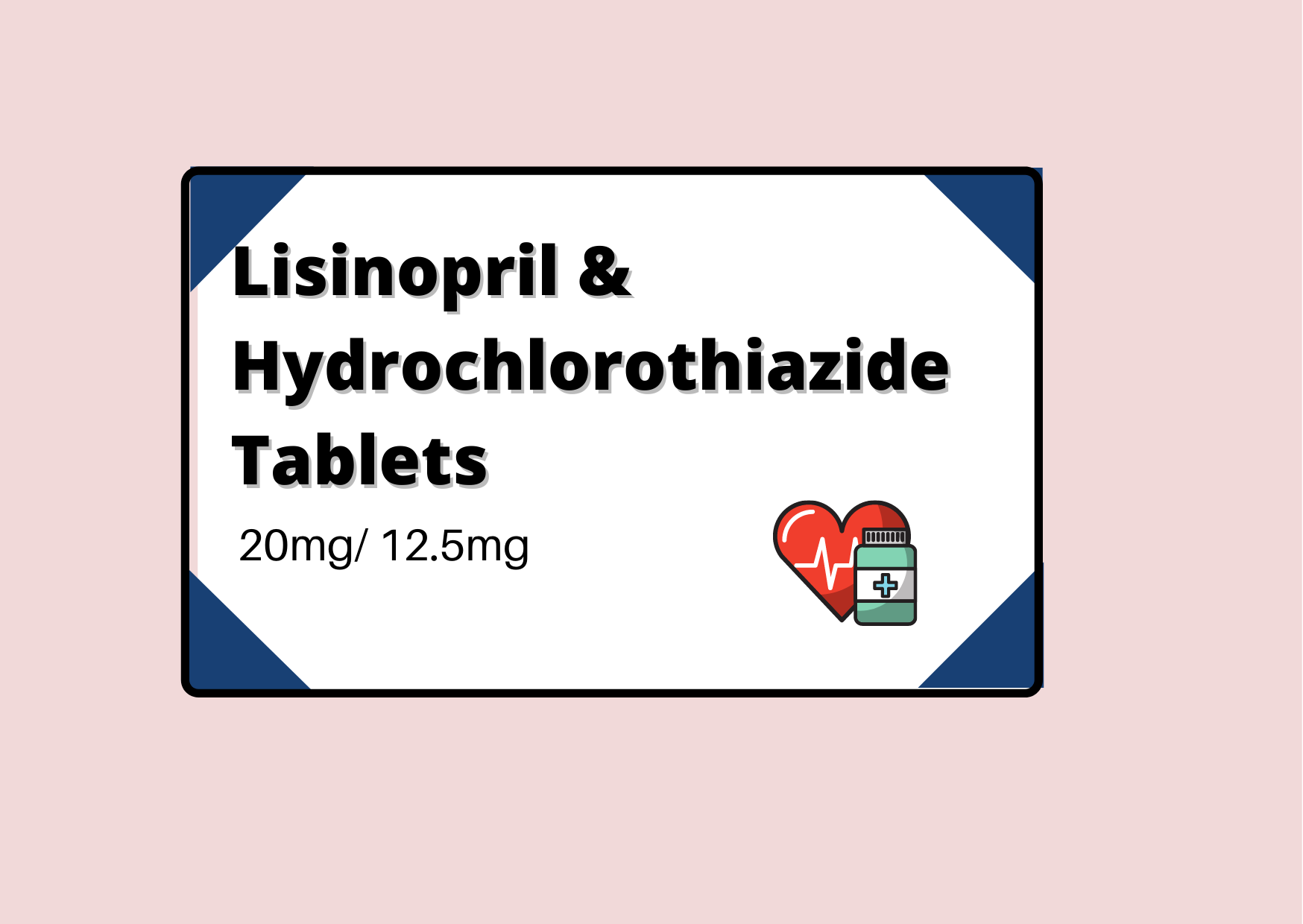2. Lisinopril mechanism of action
3. What is Lisinopril used for?
Lisinopril (Prinivil, Zestril) is an antihypertensive agent that belongs to a class of drugs known as angiotensin-converting enzyme inhibitors (ACE-inhibitors).
Lisinopril is used in the treatment of high blood pressure, kidney disease and heart failure.
| Generic name | Lisinopril |
| Brand name | Prinivil, Zestril |
| Drug class | Angiotensin-converting enzyme inhibitors |
| Drug group | Antihypertensive |
Lisinopril (Zestril) acts by preventing the conversion of angiotensin I to angiotensin II (a potent vasoconstrictor), and thus, decreases blood pressure.
Lisinopril brand names include Prinivil and Zestril. It is available as tablets and oral solutions.
Lisinopril is also available in combination with hydrochlorothiazide (diuretic) under the brand name Zestoretic.
Lisinopril, like all of the angiotensin-converting enzyme inhibitors, exerts its effect by interfering with the renin-angiotensin-aldosterone system. Lisinopril (Prinivil) is a competitive ACE inhibitor that works by preventing the conversion of angiotensin I to angiotensin II (a potent vasoconstrictor), causing relaxation of muscles surrounding the blood vessels and dilating them, and thereby improving blood flow.
It also decreases serum aldosterone, leading to decreased sodium retention, and hence, it lowers blood pressure.
Lisinopril is used in the treatment of hypertension in adults and children of 6 years and older. It can cause a rapid fall in blood pressure, particularly if it is taken with a diuretic drug.
During long-term use, it will reduce the risk of heart failure in patients with previous heart failure.
Lisinopril (Prinivil, Zestril) is also used in the treatment of diabetic nephropathy (kidney disease).
Lisinopril tablets may be crushed, and they are taken once daily without regarding meals. The doctor may advise you to reduce salt intake to help you control your blood pressure.
What should I do if I missed a dose? And when can I stop taking the drug?
If you forget a dose, take the missed dose as soon as you remember; however, if you are supposed to take your next dose within 8 hours, take one dose now and skip the next dose.
Do not stop taking the medication without consulting your doctor, if you suddenly stop taking the medication your condition may become worse.
Overdose
Usually taking an extra dose of Lisinopril will not cause problems; however, large overdoses can cause dizziness or fainting. In case of an overdose, you should immediately notify your doctor.
Lisinopril is available as:
Tablets
Oral solution (sugar-free)
Lisinopril dosage in detail.
Before using Lisinopril, make sure to tell your doctor if:
You have long-term kidney problems.
You have long-term liver problems.
You have heart problems.
You are allergic to Lisinopril.
You have had angioedema from previous treatment with ACE inhibitors.
You are using other medicines.
Pregnancy and breastfeeding
Lisinopril is not prescribed during pregnancy and breastfeeding, because it can cross the placenta and distribute in breast milk, so it may cause harm and death to the developing fetus.
Drinking Alcohol
Avoid drinking alcohol while using Lisinopril, because alcohol can increase the blood-pressure-lowering as well as the adverse effects of the drug.
Can I drive and do hazardous work while I’m using Lisinopril?
Lisinopril causes dizziness since the drug can lower blood pressure; therefore, it’s recommended to avoid those activities until you have found out how it affects you.
Lisinopril may cause a variety of adverse effects, mainly rashes and persistent dry cough. But the reduction of the dose may minimize these effects. Headache and dizziness are also common side effects of Lisinopril.
Less common and rare side effects of Lisinopril may include:
- Peripheral edema
- Tachycardia
- Insomnia
- Breathing difficulty
- Muscle cramps
Lisinopril side effects in detail
Several drugs and substances can interact with Lisinopril resulting in undesired effects. Interaction can affect the activity of the drug or increase the severity of the side effects of lisinopril.
Lisinopril can form drug-drug interactions with the following drugs:
| Drug entity | Nature of interaction |
| Non-steroidal anti-inflammatory drugs (NSAIDs) |
Reduce the effect of Lisinopril. Reduce the effect of Lisinopril. Increase the risk of kidney damage when they are taken with Lisinopril. |
| Vasodilators, diuretics, and other antihypertensives | Increase the blood-pressure-lowering effect |
| Potassium supplements, potassium-sparing diuretics & Ciclosporin | Increase the risk of high potassium levels when use with Lisinopril. |
| Insulin & antidiabetic drugs | The effect of these drugs is increased by Lisinopril. |
| Lithium | Blood levels of lithium are raised by Lisinopril |
1. Kizior, R.J. and Hodgson, B.B. (2018). Saunders nursing drug handbook 2019. Philadelphia: Saunders.
2. British Medical Association (2015). British Medical Association new guide to medicine & drugs. London: Dorling Kindersley.
3. Joint formulary committee, BNF 80 (The British National Formulary), 80th Revised edition, Pharmaceutical Press, London, United Kingdom, [2020]
4. Williams and Wolters Kluwer Health (2012). Nursing 2012 drug handbook. Philadelphia, Pa.: Wolters Kluwer Health/Lippincott Williams & Wilkins.
ACE inhibitors are a class of drugs that are used in the treatment and management of high blood pressure and heart failure. Find a list of ACE inhibitors in this article.

The combination of Lisinopril and hydrochlorothiazide is used in the treatment of high blood pressure (hypertension). Click to read more about how the correct use of the medication, the special precautions that must be considered, as well as its side effects.

The urethra is a muscular canal that extends from the neck of the bladder to the exterior of body. Read more about the anatomy of urethra in this article.

Dosage guide of Lisinopril: Click to read about the dose for your specific condition and age group.

Learn about medical uses, safety profile, mechanisms and interactions of statins.

Comprehensive guide on Ozempic (semaglutide), including its uses, dosage, side effects, warnings, and interactions.
.png)